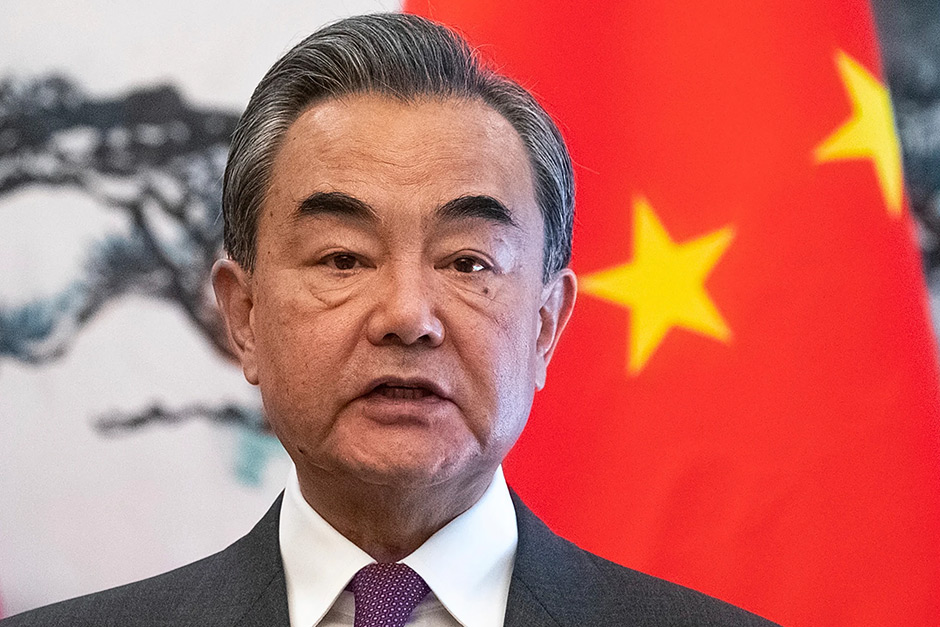The intricate tapestry of East Asian geopolitics recently saw a significant fraying point, as China’s foreign minister issued a stern warning to Japan. The statement asserted that Japan had “crossed a red line” with its remarks concerning potential military action around Taiwan. This public admonition underscores the profound sensitivities surrounding Taiwan’s status and the escalating rhetorical tensions in the region.
The Core of the Dispute: Taiwan’s Status
At the heart of this diplomatic friction lies Taiwan, an island with a democratically elected government that Beijing considers a renegade province destined for reunification with the mainland, by force if necessary. China’s “One China” principle is a fundamental pillar of its foreign policy, dictating that there is only one sovereign state under the name China, and Taiwan is an inseparable part of it. For Beijing, any suggestion of Taiwan’s independent statehood or external interference in its affairs is viewed as a direct challenge to its national sovereignty and territorial integrity.
Most countries, including Japan and the United States, acknowledge the “One China” policy, which recognizes Beijing’s claim but often maintain unofficial relations with Taiwan. However, the exact interpretation and implications of this policy vary significantly, particularly when the prospect of cross-strait military action arises. This inherent ambiguity often becomes a flashpoint for international diplomacy.
Japan’s Evolving Stance and Beijing’s Response
Historically, Japan has maintained a cautious diplomatic approach regarding Taiwan, balancing its economic ties with the mainland and its security alliance with the United States. However, in recent years, there has been a noticeable shift in Japan’s public discourse. Senior Japanese officials have increasingly voiced concerns that a conflict in the Taiwan Strait would have direct implications for Japan’s own security, given the island’s proximity to Japan’s southwestern islands and crucial shipping lanes.
It is these recent comments, linking Taiwan’s security directly to Japan’s, that have drawn Beijing’s sharp condemnation. For China, such statements are seen as a transgression of the “One China” principle and an unwarranted intrusion into what it deems internal affairs. The phrase
“crossed a red line” is not merely a figure of speech; it carries significant weight in Chinese diplomacy, signaling that an action is perceived as a fundamental challenge to its core interests and potentially inviting a more robust response.
“This particular phrase, ‘crossed a red line,’ signals a severe escalation from Beijing’s perspective,” notes Dr. Anya Sharma, a geopolitical analyst. “It suggests that Japan’s recent statements are perceived not just as unhelpful, but as a direct challenge to China’s core sovereignty claims, potentially inviting a stronger diplomatic or even economic response.”
Regional Implications and Geopolitical Tensions
The exchange between Beijing and Tokyo over Taiwan’s future highlights the broader geopolitical currents shaping the Indo-Pacific. The region is witnessing increased military activity, heightened rhetoric, and a complex web of alliances and rivalries. Japan’s growing assertiveness on Taiwan reflects a larger trend among regional powers to reconsider their strategic positions in light of perceived shifts in the balance of power.
The Taiwan Strait is considered one of the world’s most dangerous flashpoints, and any perceived escalation in rhetoric or military posturing by major players like China and Japan carries significant risks for regional stability. Diplomatic channels remain crucial for managing these tensions and preventing miscalculation, as the economic and human costs of any conflict would be immense.
The “red line” warning from China’s foreign minister serves as a stark reminder of the deep divisions and sensitivities surrounding Taiwan. It underscores the delicate balance required in international relations, where geopolitical interests, historical grievances, and national sovereignty claims intersect. The path forward will undoubtedly demand careful diplomacy and a clear understanding of each nation’s core security interests to navigate the complex waters of East Asian stability.




